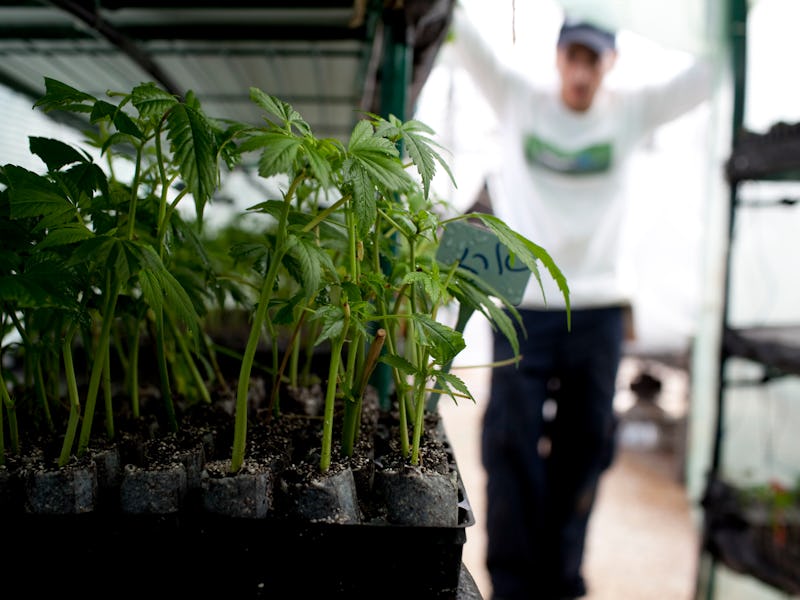Smoking Weed Doesn't Mean Smoking Pesticides if You've Got the Right Soil
All-natural bug killers keep that green, well, green.

“It’s all natural!” has long been the battle cry of pot advocates defending the drug in comparison to tobacco, which is notoriously laced with addictive and cancer-causing chemicals. But weed’s green reputation is sometimes unearned. The industrialization of medical marijuana farming has happened in parallel with the industrialization of other kinds of farming and also incorporates the use of potentially dangerous pesticides. Real natural stuff is worth more because it doesn’t present the same potential health hazard. This is why Med-X, a start-up that creates specialty soils, can reasonably pitch itself as the future of a growth business.
Human pot smokers aren’t the only marijuana fiends: insects like aphids, caterpillars, and ladybugs chew into the plant, and fungi and mold pose serious — and costly — threats to crops. Marijuana growers have grown accustomed to using harsh pesticides like Avid and Floramite, which leave their traces on the plant even once it’s been harvested and sold. Pesticides haven’t exactly been easy to regulate in marijuana farming because the drug is still illegal on the federal scale; the Environmental Protection Agency, which normally takes charge of regulating pesticide use, refuses to offer guidance on how they can be used safely. Meanwhile, the pesticides have found their way into medical marijuana — and even into some weed products labeled as “organic.”
There isn’t much research on the effects these pesticides have on the human body. The fungus-killer Myclobutanil warns on its label that it might mess with the nervous system and is considered “slightly hazardous” by the World Health Organization; an ingredient found in Avid is considered by the Pesticide Action Network as a “bad actor.” A laboratory report published in High Times suggests that 70 percent of them end up inside users. Med-X’s researchers don’t want to take any chances. They’ve developed an all-natural, nontoxic bug-killing spray, Nature-Cide All Purpose Insecticide,��� together with an insecticidal soil, that promises to eliminate the need for harsh pesticides — or EPA intervention ����������� in the first place. ���Patients using strains that have been treated with Med-X’s Nature-Cide green pest-control products will know their medicine is safe, even without a government stamp,����� the company website reads.
A sister company of Pacific Shore Holdings, a company that specializes in “green” household products like heat packs and lip balms, the Los Angeles-based Med-X hasn’t revealed what goes into its special soil, describing it only as a “proprietary blend refined through research” that protects the plant roots from pests.
Small-time home marijuana growers, naturally wary of pesticides, have long used organic substances like tomato leaf water and garlic oil to ward off bugs and infections.
Even with Pennsylvania poised to become the 24th state to make marijuana legal, it’s unlikely weed farming is going to fall under federal jurisdiction anytime soon. Companies like Med-X are poised to revolutionize cannabis cultivation — and make a ton of money doing it — if they succeed in setting production standards high just as the industry is taking off.